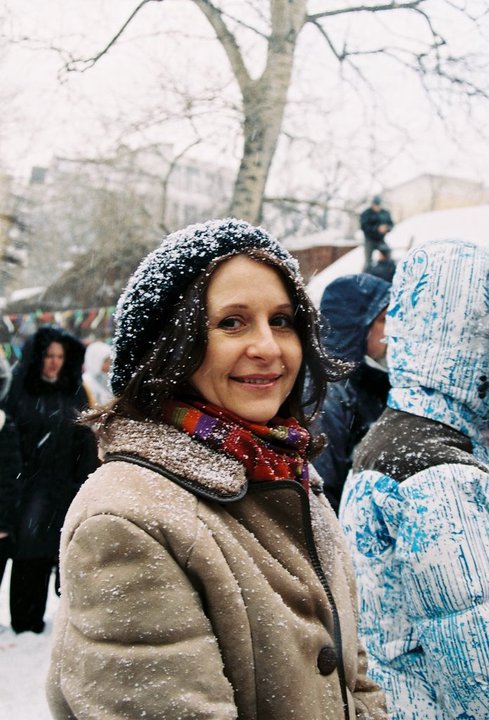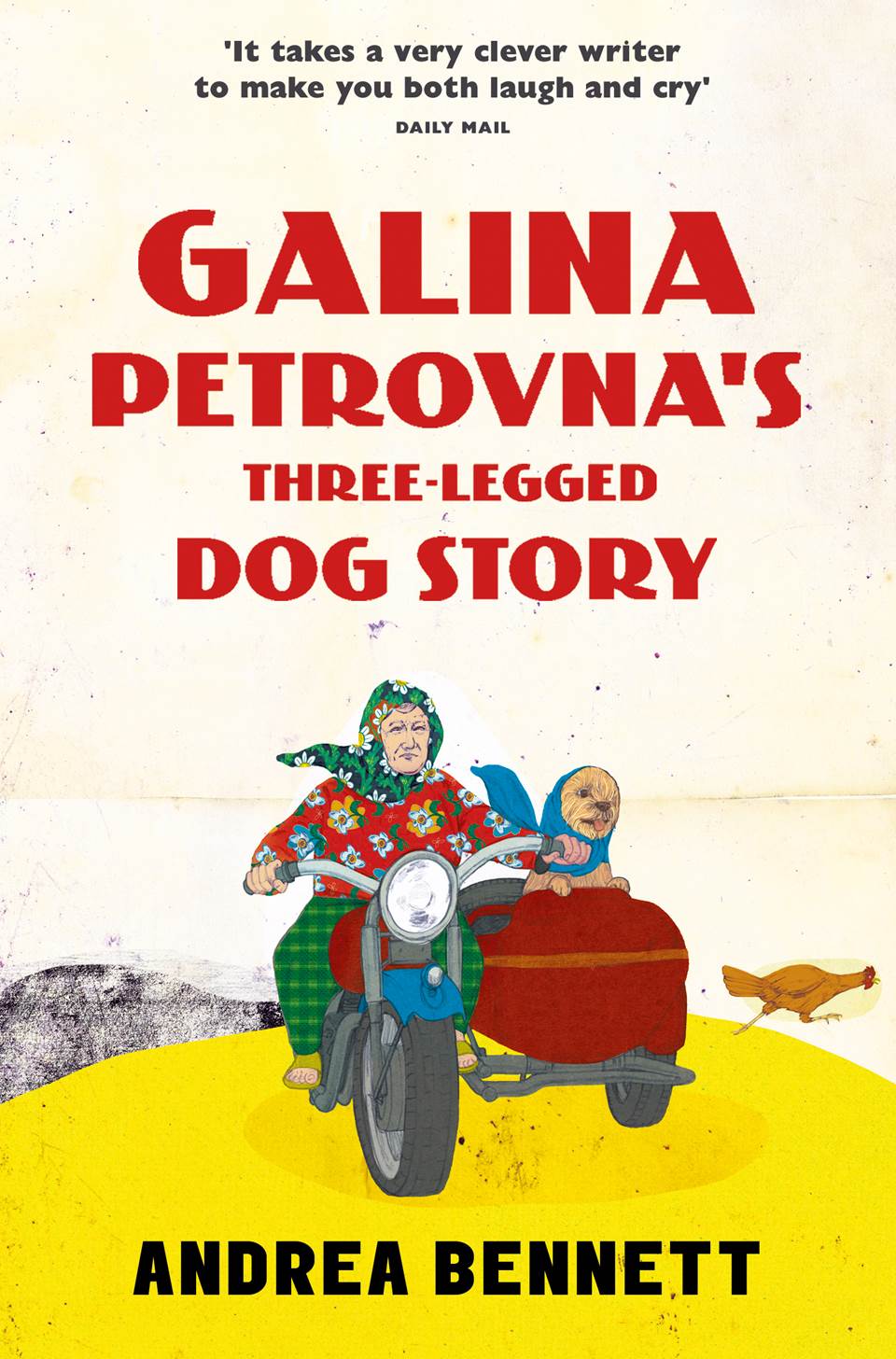Author Andrea Bennett on why her personal experiences are an essential element of her writing process.

Sticking to the adage of writing what you know – rather than what you think is clever, as a friend’s Mum once painfully observed of a short play of mine – I put a lot of recollections and personal experiences into my first novel, Galina Petrovna’s Three-Legged Dog Story.
I first visited Russia as a language student in 1991, and then settled to work there for four years as a translator – mainly of legal documents, Presidential edicts and news stories concerning crops: not the most inspiring subjects, you might think. But outside of work, my experiences were many and varied, and my memories of them remained amazingly bright, clearly delineated and set aside from the rest of my life like a kind of time capsule, ready for me to open each time I sat down to write. So, while on some levels Galina Petrovna’s Three-Legged Dog Story may seem a crazy Russian romp, many of the characters, customs, situations and events are based on things I witnessed, people I met, and places I visited. And one of the inhabitants of my memory time capsule is a three-legged dog.
The kernel of the novel is a real-life experience. There was a three-legged dog called Boroda, and she was adopted by an old lady in the southern Russian town of Azov. The old lady was my boyfriend’s granny. Now, this lady could look after herself, harangued bureaucrats with the best of them and stood for no nonsense whatsoever, but her tenderness towards the dog was striking. There was a mutual respect there, a companionship and gentleness that showed these two needed each other. In real life, their story was short: Boroda was taken by the Dog Warden as she was out in the street without a collar, and sadly she was never returned. Instead, she was destroyed in the interests of civic hygiene, and the old lady missed her every day.

Their story stuck with me. On dark days thenceforth, when sometimes everything seemed harsh and difficult, I would go over the tale as proof of what a cruel and hopeless place the world was. And then, gradually, I came round to the idea that perhaps I could make it better – at least in a work of fiction. I could write a story where the wrong was put right, and the goodness of humans could challenge their stupidity, and perhaps the old lady would still lose her dog, but would find something else along the way…something to make life more hopeful. So that’s what I did, although I didn't know, when I started out, how the story would unfold, or even how it would end. I just knew I wanted to write something that was ultimately uplifting.
And now, when it comes to characters and appearances, mannerisms and habits, I am always on the look-out for real-life inspiration. I never reproduce a person in detail, and no one is ever recognisable, because I am only taking parts and sewing them together into a new whole. I love to identify a real face for my characters too, in my mind – whether it’s someone I know or a photo I’ve found on the internet, a face in a painting, or maybe an actor. For me, once I have a clear mental picture of the character, I can make them talk and act how they should: things start to fall in to place. In my new novel, Two Cousins of Azov (yes, also set in Russia) I have a clear mental picture of the face of my hero Gor, who is a retired banker and part-time magician. The face is that of an old family friend who died some years back. The character of Gor and his situation in the book bear no resemblance to that of my old family friend, but in my mind, his appearance and the timbre of his voice is exactly the same. And that way, when I am writing him, he truly comes to life.
I am currently working on my third novel, and this time I am moving away from my memories of Russia, but still sticking with ‘writing what I know’: this time I’m writing a love-story stroke coming-of-age, set in the Midlands in 1988. I have found this new work surprisingly tricky though, and here’s why: if you visit a place for a year or two, it is easy to remember how much things cost, what was on TV and where the best shops were at that time. If you live there all the time – like me in the UK – it is very difficult to remember what was going on that year. How much did a call from a phone box cost in 1988? What was the piece of clothing everyone had to have? What was the best programme on TV? My research is on-going, and I feel there will be many more hours of Googling and asking friends to dredge up memories before I’m done.
Maybe one day I’ll throw caution to the wind and write a fantasy set on the planet Zog in the year 2343, but you can bet that in amongst all the time-travel, 12-legged air-octopuses and talking butterfly trees, there will be people I went to school with, the bloke from the shop around the corner and someone’s granny, bringing my characters to life and reflecting back the good in people, and the bad.
Andrea Bennett’s first novel, Galina Petrovna’s Three-Legged Dog Story, was published by The Borough Press in 2015. Her second novel, Two Cousins of Azov (or You Can’t Pickle Love) will be published in June 2017, also by The Borough Press. She is currently working on her third novel, and is a trustee of two charities. Visit Andrea's website here or follow her on Twitter.
Comments